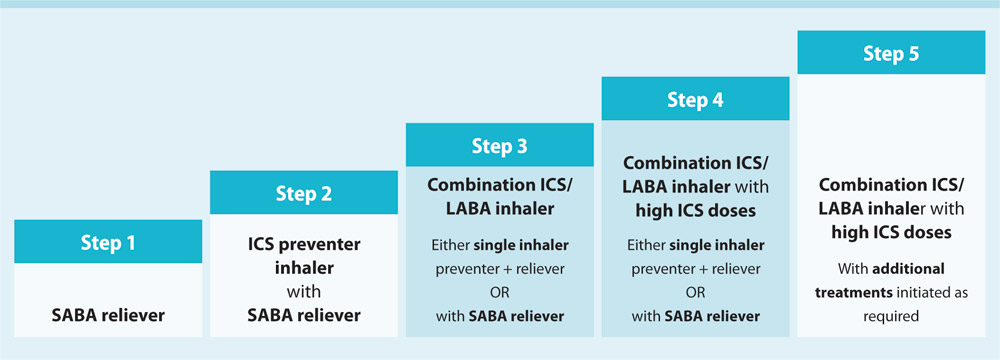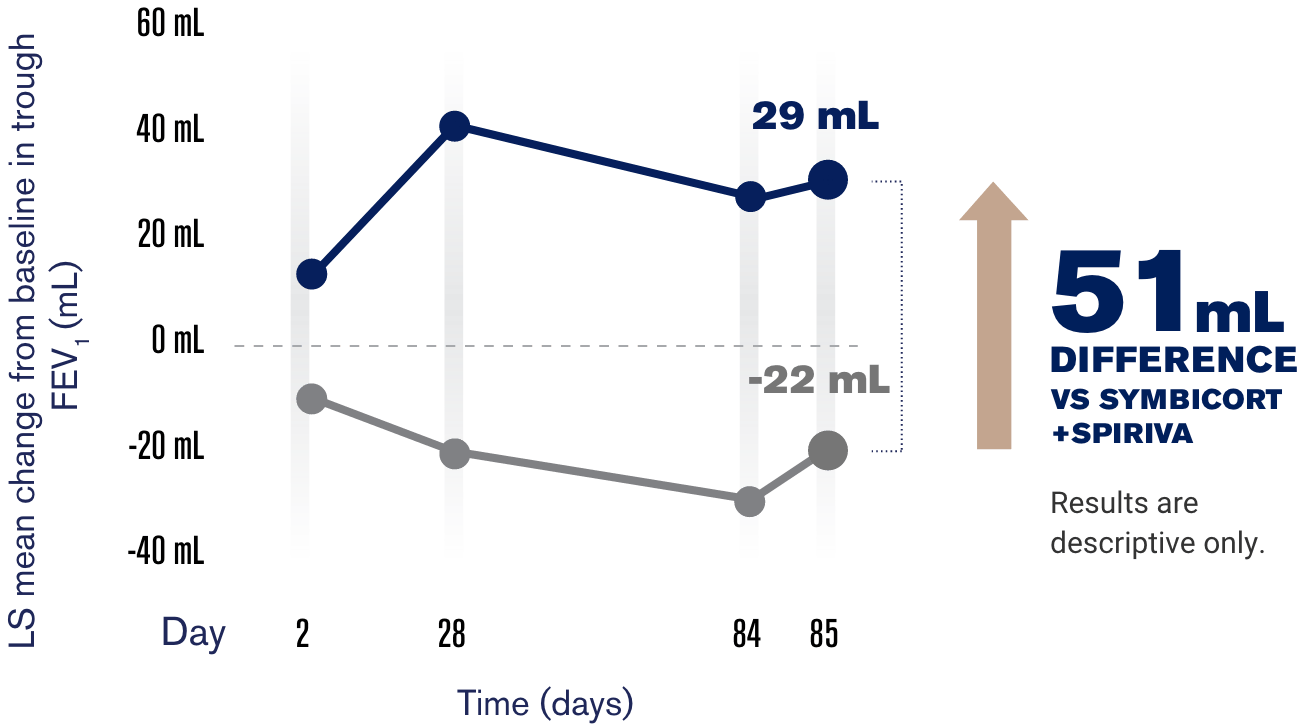


Patients with major risk factors for decreased bone mineral content, such as prolonged immobilization, family history of osteoporosis, postmenopausal status, tobacco use, advanced age, poor nutrition, or chronic use of drugs that can reduce bone mass (eg, anticonvulsants, oral corticosteroids) should be monitored and treated with established standards of care prior to initiating TRELEGY and periodically thereafter. Decreases in bone mineral density have been observed with long‐term administration of products containing ICS.

TRELEGY should be used with caution in patients with cardiovascular disorders, especially coronary insufficiency, cardiac arrhythmias, and hypertension. If such effects occur, TRELEGY may need to be discontinued. Vilanterol can produce clinically significant cardiovascular effects in some patients as measured by increases in pulse rate, systolic or diastolic blood pressure, and also cardiac arrhythmias, such as supraventricular tachycardia and extrasystoles.Discontinue TRELEGY if such reactions occur. Hypersensitivity reactions such as anaphylaxis, angioedema, rash, and urticaria may occur after administration of TRELEGY.If paradoxical bronchospasm occurs, discontinue TRELEGY and institute alternative therapy.Caution should be exercised when considering the coadministration of TRELEGY with ketoconazole and other known strong CYP3A4 inhibitors (including, but not limited to, ritonavir, clarithromycin, conivaptan, indinavir, itraconazole, lopinavir, nefazodone, nelfinavir, saquinavir, telithromycin, troleandomycin, voriconazole) because increased systemic corticosteroid and cardiovascular adverse effects may occur.If such changes occur, reduce the dose of TRELEGY slowly and consider other treatments for management of COPD or asthma symptoms. Hypercorticism and adrenal suppression may occur with higher than the recommended dosage or at the regular dosage of ICS in susceptible individuals.Taper patients slowly from systemic corticosteroids if transferring to TRELEGY. Particular care is needed for patients transferred from systemic corticosteroids to ICS because deaths due to adrenal insufficiency have occurred in patients during and after transfer.ICS should be used with caution, if at all, in patients with active or quiescent tuberculosis infections of the respiratory tract systemic fungal, bacterial, viral, or parasitic infections or ocular herpes simplex. A more serious or even fatal course of chickenpox or measles may occur in susceptible patients using corticosteroids.Physicians should remain vigilant for the possible development of pneumonia in patients with COPD, as clinical features of pneumonia and exacerbations frequently overlap. Lower respiratory tract infections, including pneumonia, have been reported following use of ICS, like fluticasone furoate.Advise patients to rinse their mouths with water without swallowing after inhalation. Oropharyngeal candidiasis has occurred in patients treated with orally inhaled drug products containing fluticasone furoate.Clinically significant cardiovascular effects and fatalities have been reported in association with excessive use of inhaled sympathomimetic drugs, like LABA. TRELEGY should not be used more often or at higher doses than recommended or with another LABA for any reason, as an overdose may result.Acute symptoms should be treated with an inhaled, short-acting beta 2-agonist. TRELEGY is NOT a rescue medication and should NOT be used for the relief of acute bronchospasm or symptoms.TRELEGY should NOT be initiated in patients during rapidly deteriorating or potentially life-threatening episodes of COPD or asthma.TRELEGY is not indicated for use in pediatric patients aged 17 years and younger. When LABA are used in fixed-dose combination with inhaled corticosteroids (ICS), data from large clinical trials do not show a significant increase in the risk of serious asthma-related events (hospitalizations, intubations, death) compared with ICS alone. These findings are considered a class effect of LABA monotherapy. Long-acting beta 2-adrenergic agonist (LABA) monotherapy for asthma increases the risk of asthma-related death, and in pediatric and adolescent patients, available data also suggest an increased risk of asthma-related hospitalization.Patients with severe hypersensitivity to milk proteins or demonstrated hypersensitivity to fluticasone furoate (FF), umeclidinium (UMEC), vilanterol (VI), or any of the excipients.Primary treatment of status asthmaticus or other acute episodes of COPD or asthma where intensive measures are required.TRELEGY is contraindicated in the following:


 0 kommentar(er)
0 kommentar(er)
